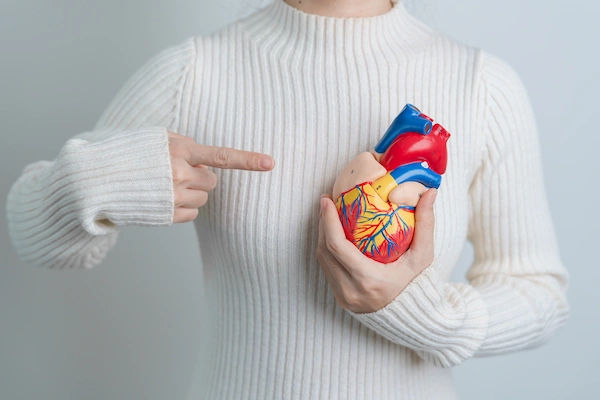- male
- 40 Years
- 20/02/2025
I'm feeling pretty anxious because I recently had some chest pain and my doctor recommended a CT angiography. The report mentions something about a small segment of myocardial bridging in the mid LAD. I'm really worried about what this means. Is it a big deal? Should I rush to consult a specialist, or is this something that I can keep an eye on for now? Would really appreciate your thoughts on this.
Answered by 1 Apollo Doctors
Myocardial bridging is a condition where a segment of a coronary artery tunnels through the myocardium rather than resting on top of it. In most cases, myocardial bridging is considered a benign condition and does not require any specific treatment. However, in some cases, it can lead to symptoms such as chest pain, especially during physical exertion. In your case, since you are experiencing chest pain and have already been advised angiography, it would be best to follow up with a cardiologist. They can further evaluate your condition and determine if any additional treatment or monitoring is necessary. In the meantime, you can manage your symptoms with medications like beta-blockers or calcium channel blockers to help relieve chest pain.
Dr. Ibrahim Suggests...
Consult a Cardiologist
Answered 25/07/2025
0
0

More Cardiology Health Queries
View allHey, I've been wondering about the 2D echo test. How long is it valid for someone with a heart condition? And what about a healthy person? I'm just trying to understand the difference.
get it doen once in every 6 months and have a regular follow up with your doctor
Answered by 1 Apollo Doctors
I've been taking Ciplar LA 40, but I'm using half, so it's like Ciplar LA 20 for my blood pressure. Sometimes my BP goes up to around 130140, and I'm only 23. Could you share some advice or steps I could take to help keep it under control?
don worry its still in the normal range sbp-100 to 140 mmhg Dbp-60 to 90 mmhg
Answered by 1 Apollo Doctors
I'm experiencing some pain in my chest on the right side of my body, especially when I take a deep breath. It's hard to pinpoint the exact spot, but it feels like it's near the upper part of my back. The pain gets intense with certain movements and when I breathe deeply. This happened about a year ago too, and the doctor did an ECG, but everything checked out fine back then. I don't have any other symptoms, and everything else seems normal. Could it be from bad posture while sleeping or sitting, or maybe it's a severe acidity problem? What do you think is causing this?
Patient is advised pulmonary function test(PFT).
Answered by 1 Apollo Doctors
Disclaimer: Answers on Apollo 247 are not intended to replace your doctor advice. Always seek help of a professional doctor in case of an medical emergency or ailment.


